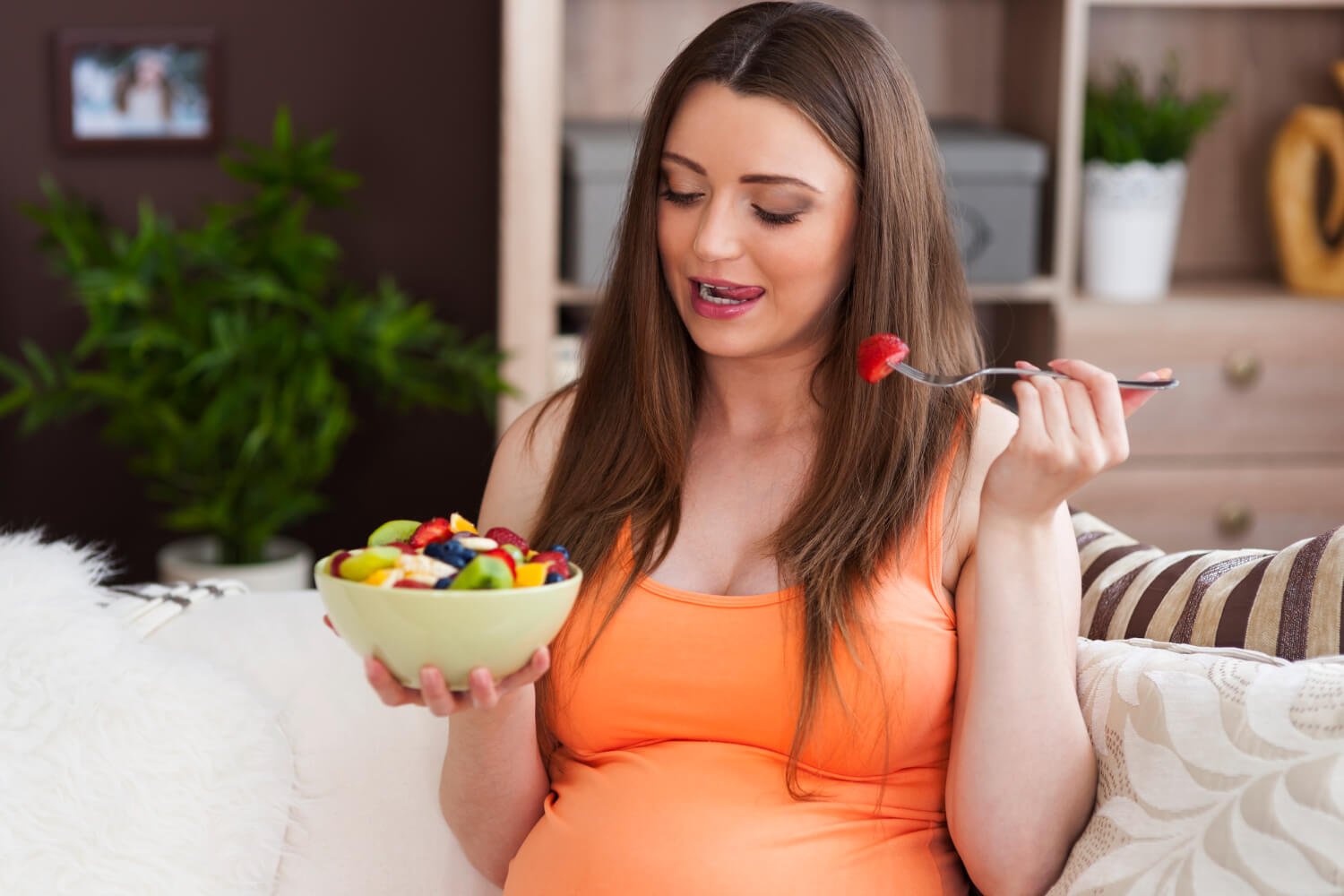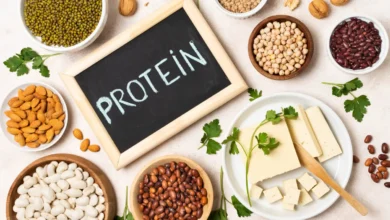Unlocking a Healthy Pregnancy: Essential Tips for Nutritious Eating

Unlocking the path to a healthy pregnancy begins with a step towards nutritious eating. A well-balanced diet is not just good for you, but it’s also crucial for the tiny life blossoming within you.
As a nutrition expert, I’ve witnessed firsthand how a nutritious diet can make all the difference during this extraordinary time of life.
However, diving into the world of pregnancy nutrition might seem daunting at first. With so many food groups to consider, nutrients to monitor, and portions to measure, where do you even begin?
Well, fret not! I’m here to guide you on this journey, breaking down complex nutrition facts into bite-sized, digestible tips that will empower you to make the best food choices for both you and your little one.
In this blog post, we will delve deep into the importance of nutritious eating during pregnancy, essential nutrients required, foods to focus on, and much more.
We’ll also tackle some common pregnancy-related eating concerns and offer wholesome snack ideas.
So, whether you’re a first-time mom-to-be or an experienced parent, there’s something for everyone to learn and apply. Ready to embark on a journey of nutritional enlightenment? Let’s get started!”
Understanding Healthy Pregnancy: The Role of Nutrition
If we think of pregnancy as a marvelous journey, then nutritious eating is your compass, guiding you and your baby towards the best possible health.
But what does it mean to have a healthy pregnancy? And what role does nutrition play in this?
A healthy pregnancy refers to the optimal wellbeing of both mother and baby throughout gestation and beyond.
It’s characterized by normal growth and development of the fetus, maintaining a healthy weight gain for the mother, and minimizing risks of pregnancy-related health issues.
Now, nutrition acts as the backbone of this healthy pregnancy. It provides the building blocks for your baby’s physical growth and brain development.
At the same time, proper nutrition supports your body as it undergoes significant changes and prepares for breastfeeding.
When you nourish your body with wholesome foods, you are also equipping your baby with the best possible start in life. So, let’s talk about some key nutrients that are vital during pregnancy.
Key Nutrients for a Healthy Pregnancy

During pregnancy, your body has specific nutritional needs that differ from when you’re not expecting. Here are some of the key nutrients that you should focus on:
- Proteins: These are the building blocks of your baby’s cells. Including sources of lean protein like chicken, tofu, or lentils in your meals can help meet this need.
- Folic Acid: This B vitamin is crucial for preventing birth defects in the baby’s brain and spine. Dark leafy greens and fortified cereals are excellent sources of folic acid.
- Iron: Iron helps both you and your baby carry oxygen in your blood. Consuming iron-rich foods like lean red meat and spinach, along with vitamin C sources to enhance absorption, is recommended.
- Calcium: Essential for your baby’s bone development, calcium can be obtained from dairy products and fortified plant-based milk.
- DHA/Omega-3: These fatty acids are vital for your baby’s brain and eye development. Fatty fish, walnuts, and chia seeds are great sources of DHA/Omega-3.
Remember, although prenatal vitamins can supplement these key nutrients, they’re not a substitute for a balanced diet.
Read Also: How to Get Enough Protein While Intermittent Fasting
Dietary Guidelines for Pregnant Women
Navigating the world of nutrition during pregnancy can be a bit overwhelming. How much should you eat? What’s the right balance? Here are some general dietary guidelines to keep in mind:
- Daily Caloric Intake: While you are “eating for two”, it doesn’t mean you need to double your calories. Most women need an extra 300-500 calories per day during the second and third trimesters.
- Balancing Macronutrients: It’s essential to maintain a balance of proteins, carbohydrates, and healthy fats in your diet. They all play unique roles in your baby’s development.
- Incorporating Micronutrients: Beyond the macronutrients, you also need various vitamins and minerals like folic acid, iron, and calcium, as we discussed in the previous section.
Always remember, every pregnancy is unique. What works for one may not work for another. So, while these are general guidelines, it’s crucial to listen to your body and adapt to your specific needs.
Food Groups to Include in Your Pregnancy Diet
Having a colorful, varied diet will not only make your meals more enjoyable, but it will also ensure you get a broad range of nutrients. Here’s a breakdown of key food groups to include in your pregnancy diet:
- Whole Grains: Foods like brown rice, oatmeal, and whole wheat bread are packed with fiber, iron, and B vitamins. They provide you with sustained energy and support your baby’s development.
- Fruits and Vegetables: Aim for at least five portions of a variety of fruits and vegetables each day. They are rich in vitamins, fiber, and antioxidants.
- Lean Protein: Incorporate lean meats, fish, eggs, beans, and nuts into your diet. These foods are essential for your baby’s growth and development.
- Dairy or Dairy Alternatives: They provide much-needed calcium and protein. If you’re vegan or lactose intolerant, look for fortified plant-based alternatives.
With these dietary guidelines and food groups in mind, creating a well-rounded pregnancy meal plan becomes a joy rather than a chore.
Read Also: Unlock Ways to Get Enough Protein Without Protein Powder
Hydration and Its Importance in Pregnancy

While we often focus on what to eat during pregnancy, what to drink is equally important. Staying well-hydrated is crucial during this time.
Hydration aids in the delivery of essential nutrients to your baby, keeps your body functioning properly, and even helps maintain amniotic fluid levels.
The star of hydration, of course, is good old water. Aim for around 8-10 glasses a day, but remember, everyone’s needs can vary, especially depending on the weather and your physical activity level.
In addition to water, you can also opt for other healthy beverages. Think milk or fortified plant-based alternatives for a calcium boost, or freshly squeezed orange juice for a shot of vitamin C.
Foods and Beverages to Avoid During Pregnancy
Just as there are foods that are beneficial during pregnancy, there are also certain items you should avoid to ensure the safety and well-being of your baby:
- Alcohol and Caffeine: It’s best to avoid alcohol entirely during pregnancy. As for caffeine, limit your intake to less than 200mg per day, equivalent to about a 12-ounce cup of coffee.
- Certain Seafood and Deli Meats: Raw or undercooked seafood and unheated deli meats can pose a risk due to potential bacteria or parasites. Choose well-cooked options instead.
- Unpasteurized Foods: Some cheeses, milk, and juices may be unpasteurized, and therefore could carry harmful bacteria. Always check the label to make sure products are pasteurized.
Your choices directly impact the health of your baby. Being mindful of what you consume can ensure you’re providing a safe and nurturing environment for your little one.
Managing Common Pregnancy-Related Eating Concerns
Pregnancy can come with its set of eating concerns, like morning sickness, cravings, or aversions. However, with a bit of strategy, you can manage these effectively:
- Morning Sickness: Eating smaller, frequent meals instead of three large ones can help manage nausea. Also, consider starting your day with a dry carbohydrate, like a piece of toast or a few crackers, before getting out of bed.
- Cravings and Aversions: Listen to your body but try to maintain a balance. If you’re craving sweets, opt for a piece of fruit instead of a candy bar. If you’re struggling with food aversions, try different cooking methods or seasonings to make meals more appealing.
- Heartburn: Avoid spicy, fried, or high-fat foods, which can trigger heartburn. Eating smaller, frequent meals and not lying down immediately after eating can also help.
Read Also: How to Improve Your Gut Health After Antibiotics
Healthy Snack Ideas for Pregnant Women
Maintaining a healthy diet doesn’t mean you can’t enjoy snacks. Here are some nutritious snack ideas that are beneficial for you and your baby:
- Greek Yogurt and Berries: This combo gives you a protein and antioxidant boost.
- Avocado on Whole Grain Toast: Rich in healthy fats and fiber, this snack will keep you full for longer.
- Hummus and Veggie Sticks: A great source of protein and vitamins, plus it’s an easy on-the-go option.
- Almonds: A handful of these can provide a quick protein and healthy fat fix.
Remember, pregnancy is an exciting journey, and nutrition plays a key role in it. Embrace this time by making wholesome food choices that nurture both you and your baby.
How Physical Activity Complements Nutritious Eating During Pregnancy

Physical activity, when done safely, plays a pivotal role in a healthy pregnancy. It complements your nutritious diet, keeping your body strong and ready for the journey of carrying a new life.
Regular, moderate exercise can help manage weight gain, boost your mood, improve sleep, and even ease some common pregnancy discomforts like backaches and fatigue.
Consider activities like walking, swimming, or prenatal yoga, which are gentle on the body yet effective.
Remember, though, every pregnancy is unique. What works for one person may not work for another. Always consult with your healthcare provider before starting or continuing any exercise regime during pregnancy.
Seeking Professional Guidance: When to Consult a Dietitian or Doctor
While we’ve explored numerous aspects of a nutritious pregnancy diet, there might be times when you need personalized advice. That’s where dietitians and doctors come in.
If you’re experiencing severe morning sickness, struggling to maintain a balanced diet due to cravings or aversions, or have a pre-existing health condition like diabetes, professional guidance can be invaluable.
Your healthcare team can help you navigate these challenges and develop a diet plan that fits your unique needs.
Never hesitate to seek help. Your health and your baby’s well-being are worth it. Remember, a healthy pregnancy doesn’t just happen—it’s a journey, and it’s okay to ask for directions along the way.
Read Also: Top Essential Vitamins and Minerals for Pregnancy You Must Know
Read Also: Addressing Common Nutrient Deficiencies: A Path to Optimal Health
Conclusion
Embarking on the journey of pregnancy can feel like stepping into a new world—one filled with joy, anticipation, and plenty of questions, especially about nutrition.
The essence of a healthy pregnancy diet is balance, variety, and moderation. It’s about eating whole grains, lean proteins, fruits, vegetables, and dairy while keeping hydrated and avoiding foods and beverages that can harm your baby.
We’ve covered how to manage common eating concerns that come with pregnancy and offered some nutritious snack ideas. We’ve also discussed the importance of physical activity and knowing when to seek professional guidance.
Remember, you’re not just eating for two—you’re also nourishing, comforting, and connecting with your baby. So, listen to your body, enjoy this unique journey, and know that every healthy choice you make contributes to a healthier and happier pregnancy.
Unlocking a healthy pregnancy through nutritious eating might not always be easy, but it’s undoubtedly worth it—for you and your little one. After all, good nutrition is the first gift you’ll give to your baby. Make it count!
FAQs
What are the key nutrients needed for a healthy pregnancy?
The key nutrients for a healthy pregnancy include folic acid, iron, calcium, vitamin D, protein, and omega-3 fatty acids.
What are some healthy snack ideas for pregnant women?
Healthy snack ideas include Greek yogurt with berries, avocado on whole grain toast, hummus with veggie sticks, and a handful of almonds.
How important is hydration during pregnancy?
Hydration is very important during pregnancy. It aids in delivering nutrients to your baby, helps maintain amniotic fluid levels, and keeps your body functioning properly.
Are there any foods or beverages to avoid during pregnancy?
Pregnant women should avoid alcohol, limit caffeine intake, and steer clear of certain seafood, deli meats, and unpasteurized foods due to potential risk of bacteria or parasites.
How can I manage morning sickness during pregnancy?
To manage morning sickness, you could try eating smaller, frequent meals instead of three large ones, and starting your day with a dry carbohydrate like toast or crackers.
Should I consult a dietitian or doctor regarding my pregnancy diet?
Yes, especially if you’re experiencing severe morning sickness, struggling to maintain a balanced diet, or have a pre-existing health condition. They can provide personalized advice for your unique needs.
Can physical activity complement nutritious eating during pregnancy?
Absolutely! Physical activity can help manage weight gain, boost your mood, improve sleep, and ease common pregnancy discomforts. Always consult with your healthcare provider before starting or continuing any exercise regime during pregnancy.




